Recombinant Human Glutathione S-transferase theta-1 (GSTT1)
-
中文名稱:人GSTT1重組蛋白
-
貨號:CSB-YP009991HU
-
規(guī)格:
-
來源:Yeast
-
其他:
-
中文名稱:人GSTT1重組蛋白
-
貨號:CSB-EP009991HU
-
規(guī)格:
-
來源:E.coli
-
其他:
-
中文名稱:人GSTT1重組蛋白
-
貨號:CSB-EP009991HU-B
-
規(guī)格:
-
來源:E.coli
-
共軛:Avi-tag Biotinylated
E. coli biotin ligase (BirA) is highly specific in covalently attaching biotin to the 15 amino acid AviTag peptide. This recombinant protein was biotinylated in vivo by AviTag-BirA technology, which method is BriA catalyzes amide linkage between the biotin and the specific lysine of the AviTag.
-
其他:
-
中文名稱:人GSTT1重組蛋白
-
貨號:CSB-BP009991HU
-
規(guī)格:
-
來源:Baculovirus
-
其他:
-
中文名稱:人GSTT1重組蛋白
-
貨號:CSB-MP009991HU
-
規(guī)格:
-
來源:Mammalian cell
-
其他:
產(chǎn)品詳情
-
純度:>85% (SDS-PAGE)
-
基因名:
-
Uniprot No.:
-
別名:EC 2.5.1.18; Glutathione S transferase 5; Glutathione S transferase theta 1; Glutathione S-transferase theta-1; Glutathione transferase T1 1; Glutathione transferase T1-1; GST 5 5; GST CL1; GST class theta 1 ; GST class-theta-1; GSTT1; GSTT1_HUMAN
-
種屬:Homo sapiens (Human)
-
蛋白長度:Full Length of Mature Protein
-
表達區(qū)域:2-240
-
氨基酸序列GLELYLDLL SQPCRAVYIF AKKNDIPFEL RIVDLIKGQH LSDAFAQVNP LKKVPALKDG DFTLTESVAI LLYLTRKYKV PDYWYPQDLQ ARARVDEYLA WQHTTLRRSC LRALWHKVMF PVFLGEPVSP QTLAATLAEL DVTLQLLEDK FLQNKAFLTG PHISLADLVA ITELMHPVGA GCQVFEGRPK LATWRQRVEA AVGEDLFQEA HEVILKAKDF PPADPTIKQK LMPWVLAMIR
-
蛋白標(biāo)簽:Tag?type?will?be?determined?during?the?manufacturing?process.
The tag type will be determined during production process. If you have specified tag type, please tell us and we will develop the specified tag preferentially. -
產(chǎn)品提供形式:Lyophilized powder
Note: We will preferentially ship the format that we have in stock, however, if you have any special requirement for the format, please remark your requirement when placing the order, we will prepare according to your demand. -
復(fù)溶:We recommend that this vial be briefly centrifuged prior to opening to bring the contents to the bottom. Please reconstitute protein in deionized sterile water to a concentration of 0.1-1.0 mg/mL.We recommend to add 5-50% of glycerol (final concentration) and aliquot for long-term storage at -20℃/-80℃. Our default final concentration of glycerol is 50%. Customers could use it as reference.
-
儲存條件:Store at -20°C/-80°C upon receipt, aliquoting is necessary for mutiple use. Avoid repeated freeze-thaw cycles.
-
保質(zhì)期:The shelf life is related to many factors, storage state, buffer ingredients, storage temperature and the stability of the protein itself.
Generally, the shelf life of liquid form is 6 months at -20°C/-80°C. The shelf life of lyophilized form is 12 months at -20°C/-80°C. -
貨期:Delivery time may differ from different purchasing way or location, please kindly consult your local distributors for specific delivery time.Note: All of our proteins are default shipped with normal blue ice packs, if you request to ship with dry ice, please communicate with us in advance and extra fees will be charged.
-
注意事項:Repeated freezing and thawing is not recommended. Store working aliquots at 4°C for up to one week.
-
Datasheet :Please contact us to get it.
相關(guān)產(chǎn)品
靶點詳情
-
功能:Conjugation of reduced glutathione to a wide number of exogenous and endogenous hydrophobic electrophiles. Acts on 1,2-epoxy-3-(4-nitrophenoxy)propane, phenethylisothiocyanate 4-nitrobenzyl chloride and 4-nitrophenethyl bromide. Displays glutathione peroxidase activity with cumene hydroperoxide.
-
基因功能參考文獻:
- Tthis study suggests that GSTM1 active and GSTT1 null genotype combination might be a risk factor in developing mitochondrial disease. PMID: 29235020
- individuals who have GSTT1 null variant are at higher risk for developing seizure than those of GSTT1 wild genotype. PMID: 30179425
- The interaction of the MTHFR, GSTT1 and hypertension may constitute a predictive model of risk for early onset ischemic heart disease in the population of Yucatan, Mexico PMID: 29395491
- GSTT1 gene polymorphism is associated with liver diseases. PMID: 29582627
- Indel variants of GSTT1 were typed in breast cancer patients and normal controls. No significant association was found. PMID: 29267651
- Homozygous deletion of GSTT1 is associated with slower HIV disease progression. PMID: 29795558
- The null genotype of GSTT1 is a strong predisposing factor for psoriasis in North India. PMID: 29067933
- The patients homozygous for the GSTT1 null alleles showed a 1.5-fold increased risk of Alzheimer's disease. PMID: 29072550
- Results related to GSTT (-) allele and elevation in aspartate aminotransferase (AST) levels should be considered with caution as AST may be elevated in other pathophysiological conditions PMID: 29523098
- MnSODVal allele is a risk factor for systemic lupus erythematosus (SLE), as well as for SLE with neurologic manifestations, while homozygous GSTT1 genotype is a risk factor for SLE with musculoskeletal manifestations. PMID: 28711952
- Higher NO2 exposure was associated with lower forced vital capacity for carriers of the GSTT1 null genotype. Traffic-related air pollution exposures were associated with increased risk of asthma, wheeze and lower lung function in middle-aged adults. The interaction with the GSTT1 genotype suggests that deficient antioxidant mechanisms may play a role in these adverse health effects. PMID: 29074540
- Overall, GSTT1 null genotype was associated with an increased esophageal cancer risk when all studies in Chinese populations pooled into this meta-analysis. In stratified studies with geographical location, significantly increased risk was found in North China (OR = 1.45, 95%CI: 1.11-1.91) and in studies with population-based control (OR = 1.29, 95%CI: 1.07-1.55). PMID: 28980936
- Analyses of the GSTT1 polymorphisms indicated a positive correlation between the GSTT1 null genotype and the Esophageal Carcinom risk (OR = 1.233, 95% CI = 1.044-1.455, p for heterogeneity <0.001). In the GSTM1-GSTT1 interaction analysis, we discovered remarkably enhanced EC risk for patients with the GSTM1 and GSTT1 dual null genotypes (OR = 1.962, 95% CI = 1.178-3.268, p for heterogeneity <0.001) PMID: 29215312
- GSTT1 gene deletion has a strong effect on urinary1- and 2-(N-acetyl-L-cysteine-S-yl)-1-hydroxybut-3-ene levels, and therefore 1,3-butadiene carcinogen metabolism, in smokers. PMID: 28292921
- The young patients Tick-borne Encephalitis level by routine cytogenetics abnormal cells was significantly higher in carriers of inactive forms of gene GSTT1 than containing active homozygous variants of these genes. PMID: 28556645
- GSTT1 polymorphism is not associated with the higher risk of cardiovascular diseases, but affects lipid profile PMID: 28365671
- polymorphisms of the GSTM1 del and GSTT1 del genes were analysed by multiplex PCR PMID: 28770368
- Frequency of GSTT1 gene polymorphism is higher in patients with atherosclerosis then in control group. PMID: 28692121
- These fi ndings suggest that carriers of null genotypes for GSTT1 might be at increased genotoxic alkyl- ating effect after exposure to pesticides. PMID: 25427726
- GSTT1 genetic polymorphisms are not associated with the development of graft-versus-host disease after allogeneic hematopoietic stem cell transplantation. PMID: 26103006
- Carriers of the GSTT1 null genotype had an increased risk of asthma and allergic outcomes if exposed to traffic-related air pollution PMID: 27372567
- The GSTT1 null genotype is significantly associated with an increased susceptibility to inflammatory bowel disease and is a risk factor for both ulcerative colitis and Crohn's disease. PMID: 28472806
- Identify as a candidate gene associated with Hailey-Hailey disease. PMID: 27523793
- It was observed that the variant genotypes of GSTM1, GSTT1, GSTP1 and CYP1A1 did not significantly increase the risk of cervical cancer (CC), however, statistically significant increased risk was observed for women who used wood for cooking and had GSTM1 (null) genotype. PMID: 28361858
- we conclude that the GSTT1 null polymorphism is not associated with the risk of developing renal cancer, since it has limited role PMID: 26154646
- first meta-analysis to prove a positive effect of the interaction between GSTT1 null genotype and smoking status on the risk of Coronary Heart Disease. PMID: 27686690
- Study provided evidence on the role of the deletion polymorphisms in the 22q11.23 region during the onset of allergic rhinitis (AR) and suggested that GSTT1 gene could be potential AR-speci fi c locus. PMID: 24902621
- GSTT1 null genotype is significantly associated with increased risk of SCD among the population of northwestern region of Saudi Arabia. In addition, it may be one of the important factors responsible for hematological manifestations of SCD. PMID: 27885941
- Glutathione S-transferase T1 null genotypes are associated with increased susceptibility to coronary artery disease in Indian populations PMID: 27920455
- GSTT1 null genotype showed protection against coronary artery disease in a North Indian Punjabi population. PMID: 27215231
- Association of GSTT1 polymorphisms with bipolar disorder risk among a Tunisian population PMID: 28043918
- Genetically induced absence of the GSTT1 enzyme is an independent and powerful predictor of premature vascular morbidity and death in individuals with T2DM. PMID: 27173202
- polymorphism might enhance bladder cancer risk [meta-analysis] PMID: 27631264
- Genetic Polymorphism of GSTT1 is associated with Prostatic Carcinoma. PMID: 27268642
- GSTT1 genetic polymorphism is not associated with ovarian cancer. PMID: 25124586
- data support the involvement of glutathione S-transferase mu 1 (GSTM1) and glutathione S-transferase theta 1 (GSTT1) in uterine leiomyoma liability, and especially its role as a genetic factor in the occurrence of this disease PMID: 26785830
- Glutathione S-transferase T1 Null Genotype is associated with Risk of Gastric Cancer. PMID: 27039739
- The impact of GSTM1/GSTT1 polymorphism for the risk of oral cancer. PMID: 25595865
- There was no interaction between glutathione S-transferase theta 1 polymorphism and traffic-related air pollution exposure during the first year of life for current hay fever. PMID: 27043549
- No statistically significant association was found between GSTM1 or GSTT1 null genotypes and varicocele in the overall data analysis. (Meta-analysis) PMID: 26782535
- null genotype associated with female infertility, though not significantly PMID: 25010410
- There were significantly higher levels of the GSTT1 null and the ACE II genotypes in ankylosing spondylitis patients compared to those in healthy controls PMID: 26186891
- results show that GSTT1 null and MDR1 polymorphisms could play a role in susceptibility to inflammatory bowel disease PMID: 26604430
- The GSTT1 null genotype was associated with significantly increased requirement of blood transfusion PMID: 25880856
- GSTT1 null genotype is a risk factor for patients with more primitive urologic malignancies. PMID: 26158735
- GSTT1-null genotype might be associated with the increased risk and enhanced susceptibility to oxidative stress in progressive myoclonus epilepsy patients PMID: 26552558
- polymorphisms modified bromo-trihalomethane exposure relation to semen quality PMID: 26970898
- The GSTT1 null genotype was more frequent in Brazilian women without endometriosis. PMID: 26350109
- GSTT1 gene polymorphisms are not associated with susceptibility of developing diabetic neuropathy in T2DM patients. PMID: 26435566
- In the present study, no risk of cervical cancer was observed in GSTT1 homozygous null genotype, except in smokers who showed a significant increased risk compared to nonsmokers. PMID: 26434855
顯示更多
收起更多
-
亞細(xì)胞定位:Cytoplasm.
-
蛋白家族:GST superfamily, Theta family
-
組織特異性:Found in erythrocyte. Expressed at low levels in liver. In lung, expressed at low levels in Clara cells and ciliated cells at the alveolar/bronchiolar junction. Absent from epithelial cells of larger bronchioles.
-
數(shù)據(jù)庫鏈接:
Most popular with customers
-
Recombinant Human Heat-stable enterotoxin receptor (GUCY2C), partial (Active)
Express system: Mammalian cell
Species: Homo sapiens (Human)
-
Recombinant Mouse Microtubule-associated protein tau (Mapt) (Active)
Express system: Mammalian cell
Species: Mus musculus (Mouse)
-
Recombinant Human Tissue factor pathway inhibitor (TFPI), partial (Active)
Express system: Mammalian cell
Species: Homo sapiens (Human)
-
Recombinant Human Cannabinoid receptor 1 (CNR1)-VLPs (Active)
Express system: Mammalian cell
Species: Homo sapiens (Human)
-
Recombinant Human Epithelial discoidin domain-containing receptor 1 (DDR1), partial (Active)
Express system: Mammalian cell
Species: Homo sapiens (Human)
-
Recombinant Human Lymphocyte antigen 6 complex locus protein G6d (LY6G6D) (Active)
Express system: Yeast
Species: Homo sapiens (Human)
-
Recombinant Human Dickkopf-related protein 1 (DKK1) (Active)
Express system: Mammalian cell
Species: Homo sapiens (Human)
-
Recombinant Human Desmoglein-3 (DSG3), partial (Active)
Express system: Baculovirus
Species: Homo sapiens (Human)


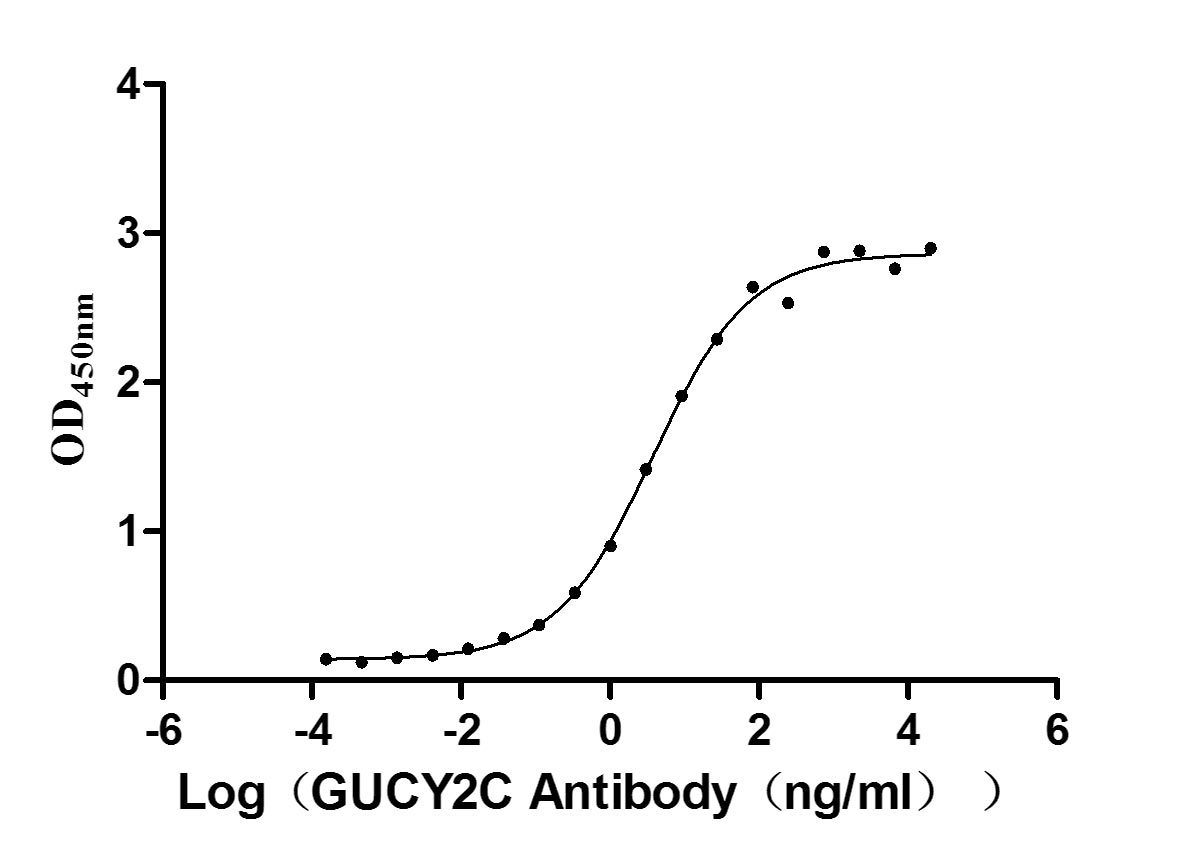
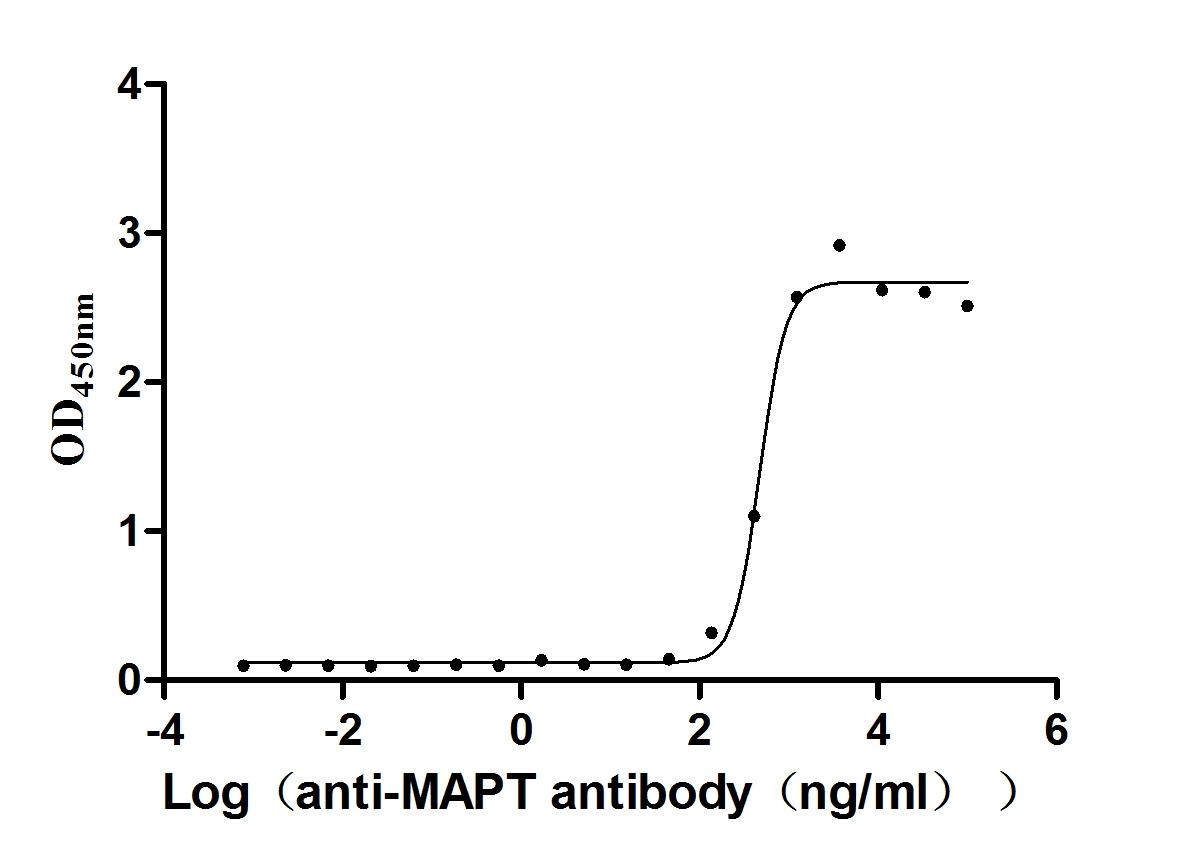
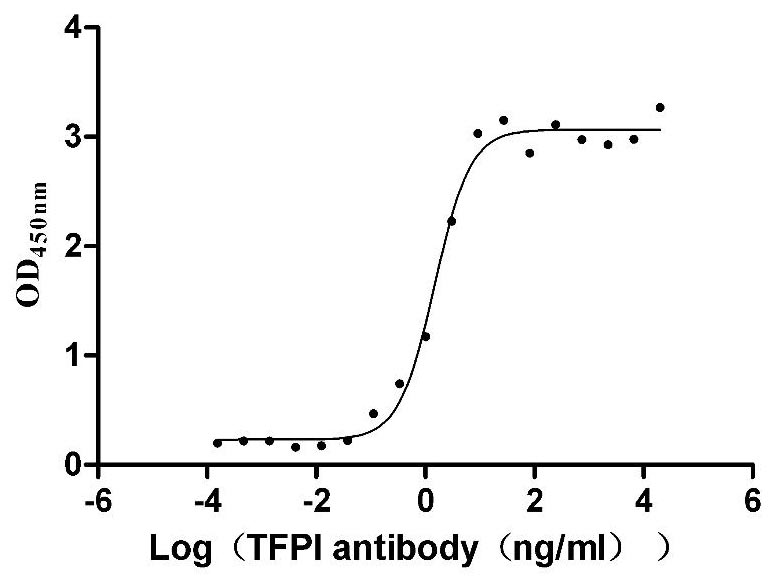

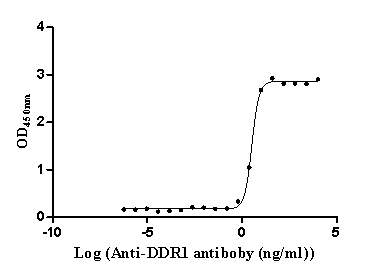
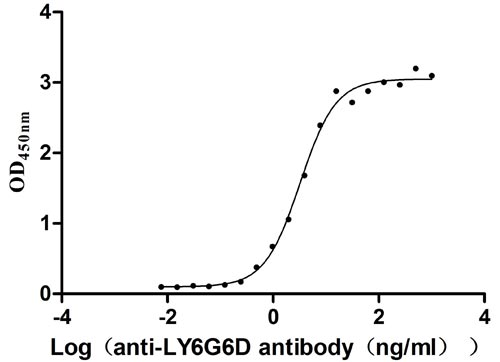
-AC1.jpg)











